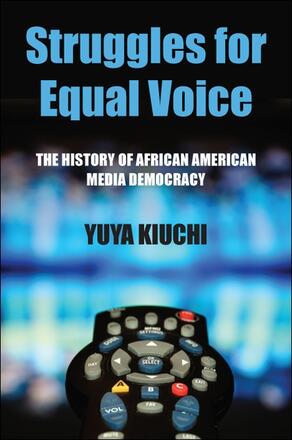
Struggles for Equal Voice
The History of African American Media Democracy
Alternative formats available from:
Reveals how African Americans used cable television as a means of empowerment.
Description
While previous scholarship on African Americans and the media has largely focused on issues such as stereotypes and program content, Struggles for Equal Voice reveals how African Americans have utilized access to cable television production and viewership as a significant step toward achieving empowerment during the post–Civil Rights and Black Power era. In this pioneering study of two metropolitan districts—Boston and Detroit—Yuya Kiuchi paints a rich and fascinating historical account of African Americans working with municipal offices, local politicians, cable service providers, and other interested parties to realize fair African American representation and media ownership. Their success provides a useful lesson of community organizing, image production, education, and grassroots political action that remains relevant and applicable even today.
Yuya Kiuchi is Assistant Professor of Writing, Rhetoric, and American Cultures at Michigan State University. He is the cotranslator of the Japanese edition of Barack Obama's Dreams from My Father: A Story of Race and Inheritance.
Reviews
"…Struggles for Equal Voice … will prove useful to students and scholars of African-American history, culture, and technology. Kiuchi succeeds in making this book a starting point for future scholarship on the African-American use of television as a means to re-create their image. " — Journal of American Culture
"Kiuchi has done commendable, extensive archival work. " — Journal of American History
"…engagingly written, well-researched, and commendably argued. Kiuchi provides a revealing and informative insight into how the mass media in America can overcome its problematic history regarding racial sensitivities, while ultimately achieving positive social outcomes for otherwise disenfranchised minorities. Kiuchi gives us an important book, one that should be read by anyone interested in racial relations and the social history of American television. " — Journal of Popular Culture